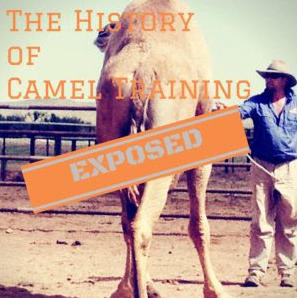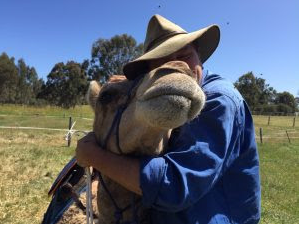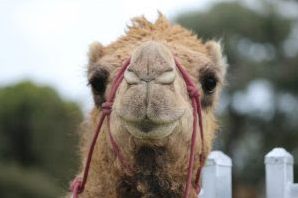Camel Training History Exposed
Sep 08, 2021There is an old but very wise saying "A thirsty camel is a dangerous camel." This comes about when a camel is at water for the first time in quite a while. They want one thing only, water! The same goes for food. A camel will forego any instructions for food or water, that is unless instructions is accompanied with harsh and physically violent action by the camel handler/camel trainer.
Camels are a very receptive animal. They have been used domestically for thousands of years and have found their way into the folklore of many cultures around the world. From this, old camel handling and camel training methods have developed in conjunction with culture of the regions where camels have been domesticated for work. Most of these regions are harsh environments. That is, they are usually low rainfall regions where food sources are scarce and the terrain is harsh.
Whilst this may or may not still be the case in such regions of the world, in the western world where camel food and water is plentiful for our [pet] camels, attention can be diverted to the more spiritual connection that can be achieved between camel and handler. In the western worlds we have no need for harsh and heavy handed camel training methods, the camel is happy, has readily available source of water, food and abundant space to roam. Not much is asked from the camel in our western cultures compared to the working camels in some overseas locations where it's Live or Die circumstances.
Our western cultures allows for different techniques of camel handling and camel training to take place.Connecting with the camel in a deep soulful manner that builds a bond between the camel and handler is hard to describe in words, and it's a personal journey. No less.
Learning the techniques of such camel handling and camel training, namely the Camel Connection, Trust Based Camel Training, is a personal journey within itself. You have no choice but to look deep within yourself to see who you are as a person, how you are presented to others, your good traits and where there is room for personal improvement.The camel sees all of who you are, no matter how well it's hidden. This is no easy task and can leave you feeling somewhat defeated, until, of course, you turn your mindset on the course of being open to new things and growing personally. It's not for everyone, but those that choose this path or camel training leave with no regrets and build a better relationship with themselves, others and of course, their camel, through the camel training process.
4 Important Question To ask Yourself Before Camel Training or Camel Handling:
1. How do you express what you want the camel to experience from you? What messages do you want to get across to your camel and what is your body language saying about those message?
2. What sort of experience do you want the camel to have when being with you? One of trust and mutual respect? Or one of dominance and coercion? Note: It's not possible to build mutual respect by training a camel with treats or food bribes.
3. How do you want to be remembered by your camel? Do you want the camel to think "food" every time they see you or to think of you as someone they can trust?
4. How can you use the connection and bond between you and the camel to a mutual beneficially any camel training or handling outcomes? In other words, how can you build your ultimate goal with the camel? Whether be to milked, ridden packed or simply as a respected pet. How can you BOTH maintain your happiness and goals while working with each other? Remember - you want to camel to work WITH you not FOR you. The long term benefits of such a mindset shift is invaluable.
This topic hits hard at the very core of who we are as humans in relationship to the animal kingdom, ourselves and the people around us. Training camels can be quite an eye opener to the parts of us that we love most and the parts we hate most too, but an open mind will always find ways to improve on any new awareness.
It's can't be denied that our human nature continually desires close connections with animals, but, overtime, due to experiences in the past with animals or even humans, we can build resistance to our natural human nature. We begin to go against the grain of what we truly desire. The good news is that there is not better time than that of the present to start a new. Everyday is a new day and every day is a new lesson.
Our Camel Connection Trust Based Camel Training deals with all of this and so much more and it is our honour to serve those who are willing to learn.
NOW, WHAT DO YOU THINK....?
Do you think camels need a heavy hand to be trained or do you prefer to gentle approach?
Do you find yourself wanting to be gentle and loving towards your camel/animals or have you got other ways that you approach this subject?
We'd love to hear from you, please share your thoughts in the comments below...
Get Your Free Copy:
Introduction to Camels eBook
We hate SPAM. We will never sell your information, for any reason.





